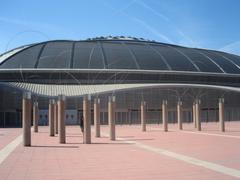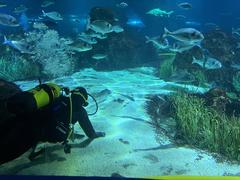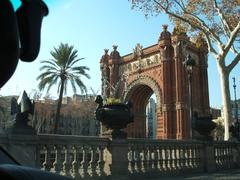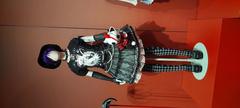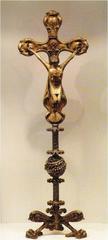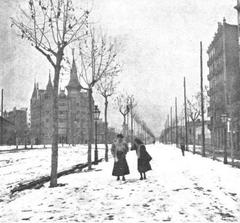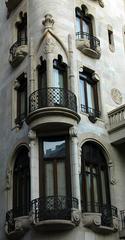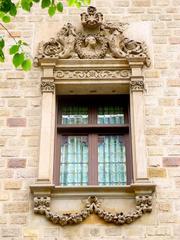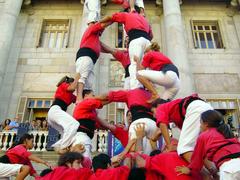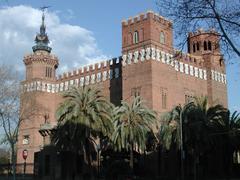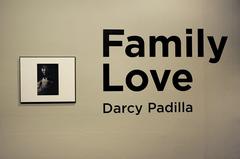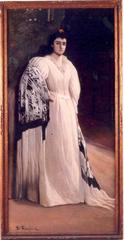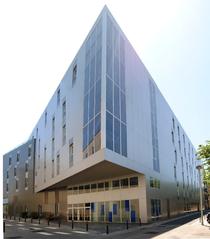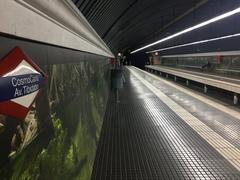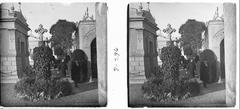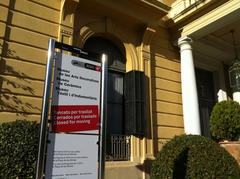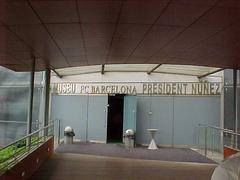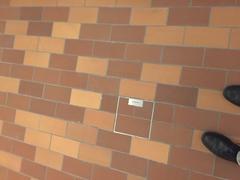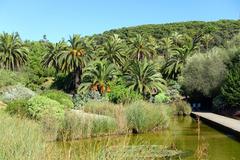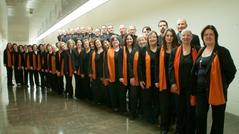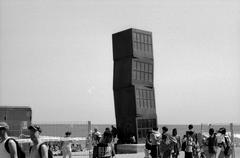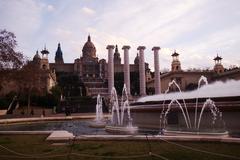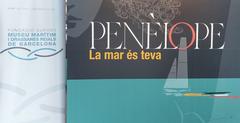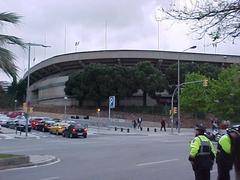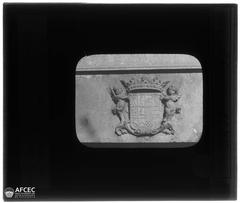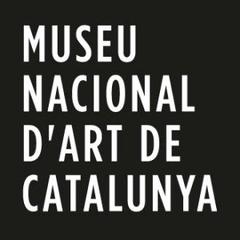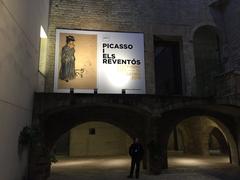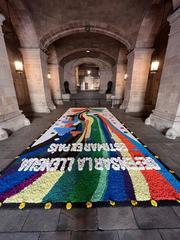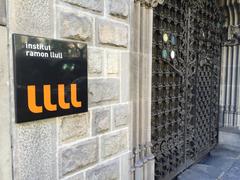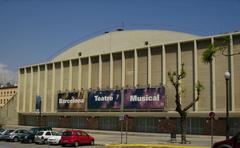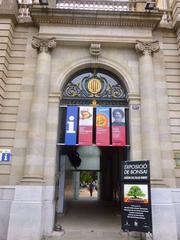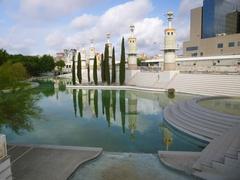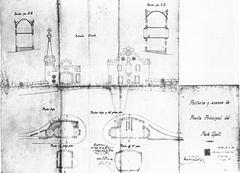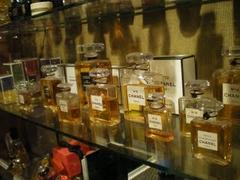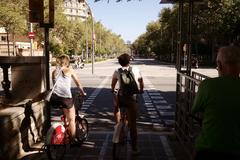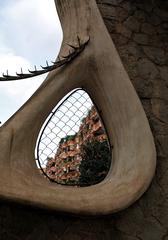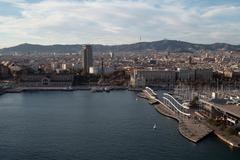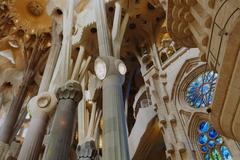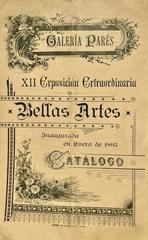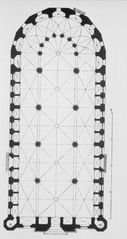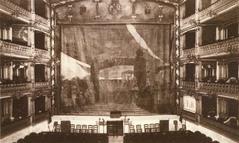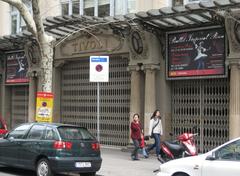
Piscis Barcelona Visiting Hours, Tickets, and In-Depth Tourist Guide
Date: 03/07/2025
Introduction to Piscis Barcelona and Its Cultural Legacy
Barcelona is world-renowned for its vibrant culture, striking architecture, and a nightlife scene that seamlessly fuses tradition with modernity. Among the city’s eclectic venues, Piscis Bar once stood as a celebrated “kitsch altar” in the Raval district. Adorned with pop culture memorabilia, glowing red lights, and an inclusive atmosphere, Piscis became a beacon for locals and travelers seeking an unorthodox, authentic Barcelona nightlife experience (laramblabarcelona.com, Time Out Barcelona).
Though Piscis Bar has closed due to urban transformation and overtourism, its influence persists. The venue not only reflected but also helped shape Barcelona’s alternative cultural identity—one that champions creativity, inclusivity, and community spirit. Its story mirrors the broader evolution of the Raval neighborhood: from bohemian enclave to a dynamic, multicultural hub that continually reinvents itself (Spain Cultures).
Complementing Piscis’s cultural significance is Barcelona’s profound maritime heritage and enduring fascination with Piscean symbolism. The city’s relationship with the sea—expressed through landmarks like Gehry’s El Peix sculpture, Gaudí’s marine-inspired designs, and the historic Barceloneta quarter—invites visitors to explore connections between spirituality, art, and the ocean (Barcelona Turisme, Your City Visit).
This comprehensive guide details Piscis Bar’s history, cultural impact, and how visitors can experience its legacy through Barcelona’s contemporary nightlife and maritime attractions. Whether you long for the nostalgic spirit of Piscis or seek to immerse yourself in the city’s aquatic traditions, this article is your roadmap for a meaningful visit in 2025.
Table of Contents
- Introduction
- Origins and Evolution of Piscis as a Kitsch Altar
- Defining Features: Décor and Atmosphere
- Cultural Significance in Barcelona’s Nightlife
- Visiting Piscis Bar: Practical Information
- Signature Cocktails and Hospitality
- Piscis within Barcelona’s Kitsch and Cultural Scene
- Visitor Experience: What to Expect
- Frequently Asked Questions (FAQs)
- The Cultural and Social Significance of Piscis in Barcelona
- Exploring Barcelona’s Maritime Heritage and Piscis Symbolism
- Summary and Visitor Recommendations
- References and Further Reading
Origins and Evolution of Piscis as a Kitsch Altar
Originally located at Carrer de Joaquín Costa, 39, Piscis Bar emerged in the late 20th century as a homage to kitsch culture and pop nostalgia. Its rise paralleled the transformation of the Raval district into a hotspot for artists, bohemians, and nightlife lovers. Piscis’s identity as a “kitsch altar” was intentional: a playful, ironic celebration of the garish and retro, resonating with Barcelona’s avant-garde ethos (laramblabarcelona.com).
While Piscis shared the stage with other flamboyant venues like Sor Rita and El Cangrejo, it distinguished itself through a more approachable, community-focused kitsch style, making it a favorite among diverse crowds.
Defining Features: Décor and Atmosphere
Upon stepping inside, guests found themselves bathed in dramatic red light—a signature of kitsch aesthetics—surrounded by a curated mix of vintage furniture, quirky trinkets, and pop culture memorabilia (laramblabarcelona.com). The bar’s owner, renowned for their warm and chatty demeanor, fostered a relaxed environment where the line between staff and patron was often delightfully blurred. This inclusive, convivial spirit became a hallmark of the Piscis experience.
Cultural Significance in Barcelona’s Nightlife
Piscis carved out a niche in Barcelona’s alternative nightlife, providing a vibrant contrast to the city’s mainstream clubs and tourist-heavy bars. By elevating kitsch to an art form, the venue both celebrated and gently mocked pop culture, reinforcing a broader local tradition of creativity, experimentation, and resistance to convention (laramblabarcelona.com). The bar’s popularity helped cement Raval’s status as a cultural and social hub.
Visiting Piscis Bar: Practical Information
Note: Piscis Bar is permanently closed, but its legacy endures in the Raval district and Barcelona’s nightlife scene.
Location and Accessibility
- Address: Carrer de Joaquín Costa, 39, Raval, Barcelona
- Nearby Attractions: La Boqueria market, Plaça Catalunya, Gothic Quarter, MACBA
- Accessibility: As with many historic Raval venues, accessibility was limited. For current options in similar venues, contact directly for up-to-date information.
Opening Hours
- Standard hours were late afternoon (6 PM) to early morning (2–3 AM). For current nightlife, check local listings.
Entrance Fees and Tickets
- Regular entry was free. Special events occasionally required tickets, announced via social media.
Language
- The atmosphere was predominantly Catalan and Spanish. Staff typically spoke little English. Learning basic phrases is recommended for deeper engagement.
Payment Methods
- Cash (Euros) was preferred; credit card acceptance varied. Carrying cash remains advisable in small local venues.
Dress Code
- No formal dress code; casual, expressive attire encouraged.
Safety Tips
- Like all nightlife areas, Raval required vigilance against pickpockets, especially late at night (gamintraveler.com).
Signature Cocktails and Hospitality
Piscis was famed for its “cojonudos” (awesome) cocktails—classic drinks with playful, kitsch twists and vibrant presentation (laramblabarcelona.com). The owner’s cheerful hospitality made every visitor feel like part of the extended family, embodying the spirit of Barcelona’s most beloved alternative bars.
Piscis within Barcelona’s Kitsch and Cultural Scene
As part of a network of kitsch venues, Piscis contributed to Barcelona’s creative and inclusive nightlife, serving as a gathering place for the LGBTQ+ community, artists, and lovers of quirky fun (laramblabarcelona.com). These spaces underpin the city’s reputation for openness and artistic flair.
Visitor Experience: What to Expect
A night at Piscis was a sensory feast: bold colors, Spanish pop classics, and a crowd as diverse as Barcelona itself. The language barrier, far from a hindrance, added to the adventure and authenticity of the experience.
Frequently Asked Questions (FAQs)
Q: What were Piscis Bar’s visiting hours?
A: Typically 6 PM – 2–3 AM; hours varied by event and season.
Q: Was there an entrance fee?
A: Entry was generally free; tickets only needed for special themed events.
Q: Were credit cards accepted?
A: Cash was preferred; always bring euros.
Q: Was Piscis wheelchair accessible?
A: Accessibility was limited; always verify with the venue when visiting similar bars.
Q: Was there a dress code?
A: No; casual and creative dress was welcomed.
The Cultural and Social Significance of Piscis in Barcelona
Piscis and Counterculture
Piscis’s main room, with its retro furnishings and saturated lighting, stood as a “kitsch altar” and was even described as deserving World Heritage status (Time Out Barcelona). The bar became a magnet for artists, musicians, and free spirits, nourishing the local tradition of non-conformity and creative expression (Spain Cultures).
Nightlife and Community
Barcelona’s nightlife thrives on diversity, inclusion, and authenticity. Piscis exemplified this, offering a relaxed, communal space where locals and visitors mingled, ideas flowed, and friendships blossomed (Time Out Barcelona, Spain Cultures).
Integration with Barcelona’s Heritage
Piscis’s décor paid homage to Barcelona’s layered history, blending echoes of Roman and medieval styles with contemporary kitsch (Your City Visit). This reflects how the city continually adapts its traditions within new cultural contexts (World City History).
Alternative Venues and Catalan Identity
Catalan culture values regional identity, language, and tradition. Alternative venues like Piscis fostered spaces where local customs and creativity intertwined, supporting artists and community events rooted in Catalan heritage (Spain Cultures).
Social Dynamics and Inclusivity
Piscis attracted a diverse clientele—locals, expatriates, and tourists—all drawn by its unpretentious vibe. The bar’s inclusivity mirrored citywide events like La Mercè and Festa Major de Gràcia (Leaps of Travel, Spain Cultures).
Urban Change and Overtourism
Piscis’s closure highlights the pressures of gentrification and overtourism in Barcelona, where rising costs and shifting demographics threaten beloved local venues (Mirror UK, Spain Voyages).
Visitor Information and Responsible Tourism
Although Piscis is closed, the surrounding Raval district remains rich with alternative nightlife and culture. Explore similar venues, support local businesses, and respect community norms—especially as Barcelona introduces new tourist regulations in 2025 (Euro Weekly News, Leaps of Travel).
FAQs
-
Q: Is Piscis currently open?
A: No, it is permanently closed, but its influence lingers in the city’s nightlife. -
Q: Where can I find similar nightlife?
A: El Raval and Gràcia neighborhoods offer alternative bars and venues. -
Q: Are there cultural tours covering Barcelona’s nightlife?
A: Yes, several companies offer tours focused on nightlife, street art, and history. -
Q: How can I support local culture?
A: Patronize local venues, attend community events, and embrace responsible tourism.
Exploring Barcelona’s Maritime Heritage and Piscis Symbolism
Piscean Symbolism and Maritime Heritage
Though no physical monument named “Piscis” exists, Barcelona’s maritime identity and Piscean symbolism permeate the city. The fish is a recurring motif in art, architecture, and festivals, reflecting spirituality and the city’s deep relationship with the sea.
Key Visitor Attractions
Barceloneta & Port Vell
- Barceloneta: A historic fishing district, ideal for strolling, sampling seafood, and experiencing local tradition.
- Port Vell & L’Aquàrium de Barcelona: Explore the historic port and the renowned aquarium, home to thousands of marine species.
Iconic Fish Symbolism in Art and Architecture
- El Peix Sculpture: Frank Gehry’s iconic fish near Port Olímpic embodies Barcelona’s connection to the sea.
- Casa Batlló: Gaudí’s masterpiece showcases marine motifs in its organic forms and vibrant tiles.
Spiritual and Artistic Sites
- Cathedral of Barcelona & Santa Maria del Mar: Both feature historic fish symbolism, tying into the city’s spiritual heritage.
- Museums: The Museu Nacional d’Art de Catalunya and Picasso Museum highlight sea-inspired art.
Water-Based and Cultural Activities
- Sailing, Kayaking, Paddleboarding: Enjoy the Mediterranean with guided excursions.
- Festivals: Events like Festa Major de Raval and Poble Sec celebrate maritime traditions.
- Vermouth Tasting: Experience local culinary culture in seaside bars.
Alternative Piscean Experiences
- Scuba Diving: Discover marine life at Playa del Llevant.
- Seafood Cooking Classes: Learn traditional Catalan recipes.
- Yoga by the Sea: Join sunrise or sunset sessions on the beach.
- Hidden Bars and Rooftops: Seek out maritime-themed venues with panoramic views.
- Excursions: Day trips to Costa Brava or the Labyrinth Park offer a tranquil, nature-filled escape.
Visitor Tips and Information
- Best Time to Visit: July features ideal weather and lively festivals.
- Transportation: Public transit is efficient; biking and taxis also convenient for coastal areas.
- Booking: Reserve tickets for popular attractions in advance.
- Accessibility: Most major sites are accessible; always confirm before visiting.
- Etiquette: Embrace local customs, including later dining hours and respect for siesta.
FAQs
-
Q: Is there a Piscis monument?
A: No; the concept is symbolic, best explored through maritime neighborhoods and art. -
Q: Where can I see fish-inspired art?
A: El Peix sculpture, Casa Batlló, and public spaces in Barceloneta and the port. -
Q: Are there maritime tours?
A: Yes, walking and boat tours are widely available. -
Q: Which festivals highlight Barcelona’s seafaring heritage?
A: Festa Major de Raval and Poble Sec celebrate marine traditions. -
Q: How can I experience Piscean spirituality?
A: Visit historic churches, engage in seaside yoga, and explore sea-themed art.
Summary and Visitor Recommendations for Piscis Barcelona
Piscis Bar, once a luminous kitsch landmark in Raval, epitomized Barcelona’s love for spaces that spark creativity, inclusivity, and spontaneous connection (laramblabarcelona.com, Time Out Barcelona). Its closure highlights the need to support authentic local venues amid urban change. The city’s maritime heritage, echoed in architecture, neighborhoods, and festivals, continues to offer visitors a chance to connect deeply with both tradition and innovation (Barcelona Turisme, Spain Cultures).
To make the most of your visit, blend exploration of alternative nightlife with maritime experiences, using official resources and local guides for the most current information. Embrace Barcelona’s dynamic spirit—where kitsch, creativity, hospitality, and the sea converge for an unforgettable experience (Audiala App, Barcelona Tourism).
References and Further Reading
- Visiting Piscis Bar in Barcelona: History, Atmosphere, and Tips for an Unforgettable Night, 2025, La Rambla Barcelona (laramblabarcelona.com)
- The Cultural and Social Significance of Piscis in Barcelona: Visitor Guide, History, and Tips, 2025, Time Out Barcelona (Time Out Barcelona)
- The Cultural and Social Significance of Piscis in Barcelona: Visitor Guide, History, and Tips, 2025, Spain Cultures (Spain Cultures)
- Exploring Barcelona’s Maritime Heritage and Piscis Symbolism: Visitor Tips and Attractions, 2025, Barcelona Turisme (Barcelona Turisme)
- Exploring Barcelona’s Maritime Heritage and Piscis Symbolism: Visitor Tips and Attractions, 2025, Your City Visit (Your City Visit)
- Exploring Barcelona’s Maritime Heritage and Piscis Symbolism: Visitor Tips and Attractions, 2025, Spain Cultures (Spain Cultures)
- Auditla App, 2025 (Audiala App)
- Barcelona Tourism, 2025 (Barcelona Tourism)


